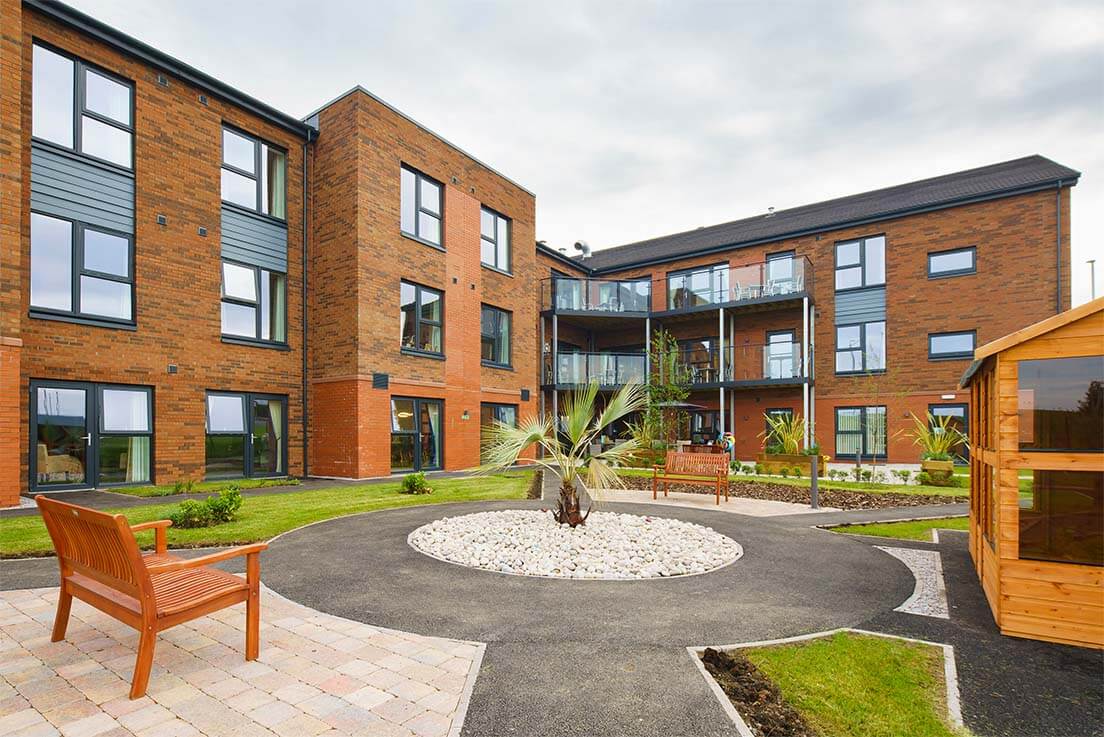Palliative Care vs End of Life Care: What is the Difference and Which is the Right Choice?

When someone you love is facing a serious or life limiting illness, it's only natural to want the very best care and support for them. Two terms that often arise during this time are palliative care and end of life care. While these terms are sometimes used interchangeably, they refer to different stages and types of support. Understanding the key differences between them can help families make informed decisions about what is most appropriate for their loved one's needs.
At Queens View Harbour Care Home, we are committed to providing specialist care and a holistic approach to health, comfort, and dignity during all stages of illness. Let's explore the differences between palliative and end of life care, their unique benefits, and how to determine which is the right choice for your situation.
What is Palliative Care?
Palliative care is a type of specialist care focused on improving the quality of life for individuals living with a life limiting condition or serious illness. Unlike curative treatments which aim to eliminate disease, palliative care aims to manage pain, control symptoms, and provide emotional support, spiritual support, and practical support to both patients and their family members.
Who Can Receive Palliative Care?
Anyone diagnosed with serious illness such as cancer, heart failure, chronic lung conditions, or advanced dementia may be eligible to receive palliative care. It can be provided alongside other treatments, including those aimed at extending life of addressing symptoms. This means patients can continue with chemotherapy, surgery, or other therapies while benefiting from palliative input.
What Does Palliative Care Involve?
Delivered by a multidisciplinary team of healthcare professionals including doctors, nurses, occupational therapists, social workers, complementary therapists and chaplains, palliative care offers a holistic approach. It includes:
- Relief from distressing symptoms such as pain, breathlessness, fatigue, and nausea.
- Psychological and emotional support to help patients and families cope.
- Spiritual support to address existential questions or beliefs.
- Help with practical matters such as mobility aids or home adjustments.
- Personalised care plans that reflect the patients wishes and well being.
Palliative care can be provided in various settings, including outpatient clinics, hospitals, hospices, care homes, or a person's own home.
What is End of Life Care?
End of life care is a form of palliative care, but it is specifically for those who are nearing the final days or last few weeks of life. It is suitable for individuals with a terminal diagnosis when their life expectancy is estimated to be short, and curative treatment is no longer appropriate.
The Goal of End of Life Care
The primary aim of end of life care is to ensure that the dying person is comfortable, pain-free, and able to pass with dignity. Just like broader palliative care, it involves a healthcare team who work together to provide personal care, emotional support, spiritual support, and bereavement support for family members.
Services Within End of Life Care
End of life care may include:
- Symptom management to relieve pain and control physical symptoms
- Practical and emotional support for both the patient and their loved ones
- Support from community nurses, general practitioners (GPs), social care professionals, and other specialists
- Care planning that respects the person's choices and active role in decision making
- Coordination of care across care settings to ensure continuity
- After-death care and bereavement support for families
Palliative Care vs End of Life Care: What is the Difference?
Although both types of focus on comfort, and quality of life, understanding the differences between palliative care and end of life care is essential.
Palliative care can begin at any stage of a serious or life limiting illness. It is not restricted to the final phase of life and is often provided from the point of diagnosis. This form of care works alongside curative treatments, helping patients manage symptoms and maintain comfort while still undergoing interventions such as chemotherapy, radiotherapy, or surgery. Because it focuses on reliving pain, controlling symptoms, and improving overall well being, palliative care can be offered over an extended period - sometimes even months or years.
By contrast, end of life care is a specific type of palliative care provided when someone is approaching the final week of days of life. It is most appropriate when a terminal diagnosis has been made and curative treatment is no longer an option. The focus shifts entirely to comfort, dignity, and emotional support as the individual nears death.
The goal of palliative care is to enhance daily life, promote independence, and offer a holistic support system for both patients and families. It allows individuals to retain an active role in their care, addressing not just physical symptoms but also emotional, psychological, and spiritual needs. In comparison, the aim of end of life care is to make the person as comfortable as possible in their final days, ensuring they are free from distress and pain, and that their wishes are honoured.
Palliative care is often delivered across a variety of settings, such as outpatients clinics, hospitals, nursing homes, care homes, hospices, and even in the patient's own home. It is flexible and adaptable, evolving with the person's changing needs. End of life care, while also available in different environments, is usually more intensive and short-term, designed to provide round-the-clock support during the final stages of life.
Which is the Right Choice?
The choice between palliative care and end of life care depends on the individuals condition, stage of illness, and personalised care requirements.
When Palliative Care is Appropriate
Palliative care is the right choice if you or your loved one:
- Has a life limiting illness or incurable illness but is still undergoing treatment
- Needs help managing symptoms like pain or fatigue
- Requires emotional support, practical support, or spiritual care
- Wishes to improve day-to-day comfort and maintain independence
- Wants care that adapts as their illness progresses
Choosing palliative care early can significantly enhance quality of life, even years before death. In fact, many patients live longer and more comfortably with access to regular palliative input.
When End of Life Care is the Right Option
End of life care is the right choice if your loved one:
- Has received a terminal diagnosis with a short life expectancy
- Is no longer pursing curative treatments
- Needs round-the-clock care to stay comfortable in their final days
- Wants to die in a familiar environment with dignity
- Needs extensive support for the family as death approaches
How We Support People at Queens View Harbour
At Queens View Harbour, we recognise that no two people are the same. That's why our approach to both palliative and end of life care is centred around personalised care and dignity.
Our compassionate care professionals work alongside healthcare professionals, community nurses, general practitioners, and social workers to ensure that residents receive the best possible care at every stage of their journey. Our staff are trained in managing symptoms, providing emotional and spiritual support, and delivering sensitive personal care that upholds comfort and respect.
Key Features of Our Palliative and End of Life Services
- Access to a multidisciplinary team including occupational therapists, complementary therapists, and chaplains
- Comfortable, well-equipped care home facilities tailored to individual needs
- Involvement of families in care planning and daily decisions
- Around-the-clock nursing support in a calm, homely setting
- Flexible care services that can adapt to the changing nature of the illness
- Access to hospice care support if required
We are here not only for our residents, but also for their family members, offering practical and emotional support, guidance through difficult decisions, and bereavement support afterwards.
Making an Informed Decision
Choosing between palliative care and end of life care can feel overwhelming. However, you don't have to make that decision alone. Your GP, healthcare team, or one of our experienced team members at Queens View Harbour Care Home can guide you with compassion and honesty.
When assessing care options, considering:
- The stage and prognosis of the illness
- What types of support are needed - physical, emotional, practical
- The individuals wishes and goals
- Where they would prefer to receive care - at home, in a nursing home, or in a hospice
- Whether curative treatments are still ongoing
Both types of care are designed to improve quality of life. Whether someone is receiving palliative care for a longer-term condition or end of life care during their final days, the focus remains on comfort, dignity, and peace.
Understanding the Differences
Understanding the differences between palliative care and end of life care helps ensure that your loved one receives the right kind of support at the right time. While palliative care supports people living with serious illnesses for months of even years, end of life care steps in when someone is approaching death. Each has a vital role in easing suffering and offering comprehensive care.
At Queens View Harbour, we are here to provide expert care, compassion, and a listening ear during this emotional journey. If you would like to learn more about our specialist care services or speak to someone about your loved one's needs, please don't hesitate to get in touch.





